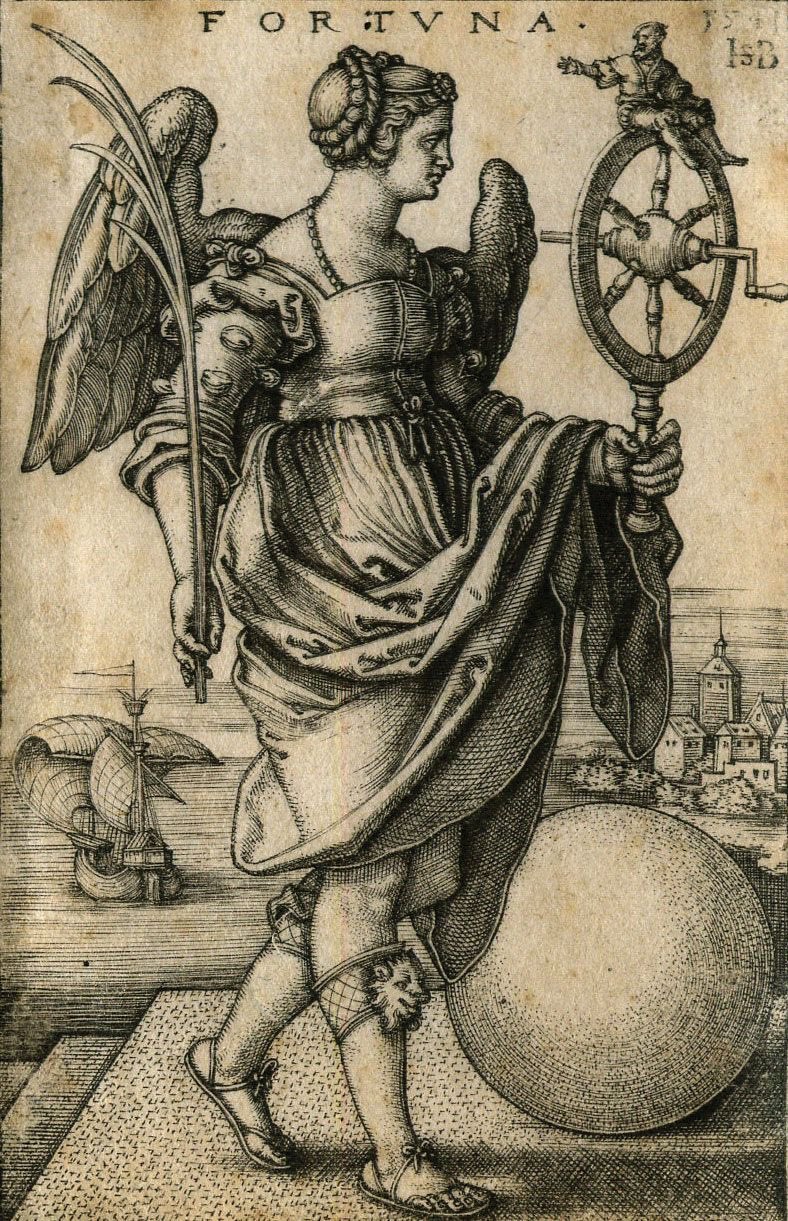Fortune
The Roman goddess Fortuna, who personified luck or chance, gave us the English word fortune and fortuitous (mid 17th century). The saying fortune favours the brave, is found in English from the late 14th century, but the same idea can be traced back to classical times. The Roman poet Virgil included the line ‘audentes fortuna iuvat’ or ‘fortune favours the brave’ in his epic poem the Aeneid.

堤喀(Tyche)是希腊神话中的运气女神,相当于罗马神话中的福尔图娜(Fortuna)。希腊诗人赫西奥德把她说成是提坦神俄刻阿诺斯和他的妻子忒堤斯生的女儿;另一些作家则认为她的父亲是最高的天神宙斯。她常常以长着翅膀,头戴皇冠,手持聚宝盆的形象出现;但有时她又是蒙着眼睛的,代表各种欲望都存在着风险与不定。英语单词tychism(偶然主义)就来自堤喀的名字Tyche
在罗马神话中,运气女神被称为“福尔图那”(Fortuna)。她的形象一般为一手执羊角,象征丰饶和财富,一手执车轮,象征命运的变迁兴衰。幸运女神的名字Fortuna在拉丁语中是“好运”的意思。英语单词fortune(好运、财富)就来源于此。习语wheel of fortune的字面意思是幸运女神的车轮,比喻命运或人生的变迁。